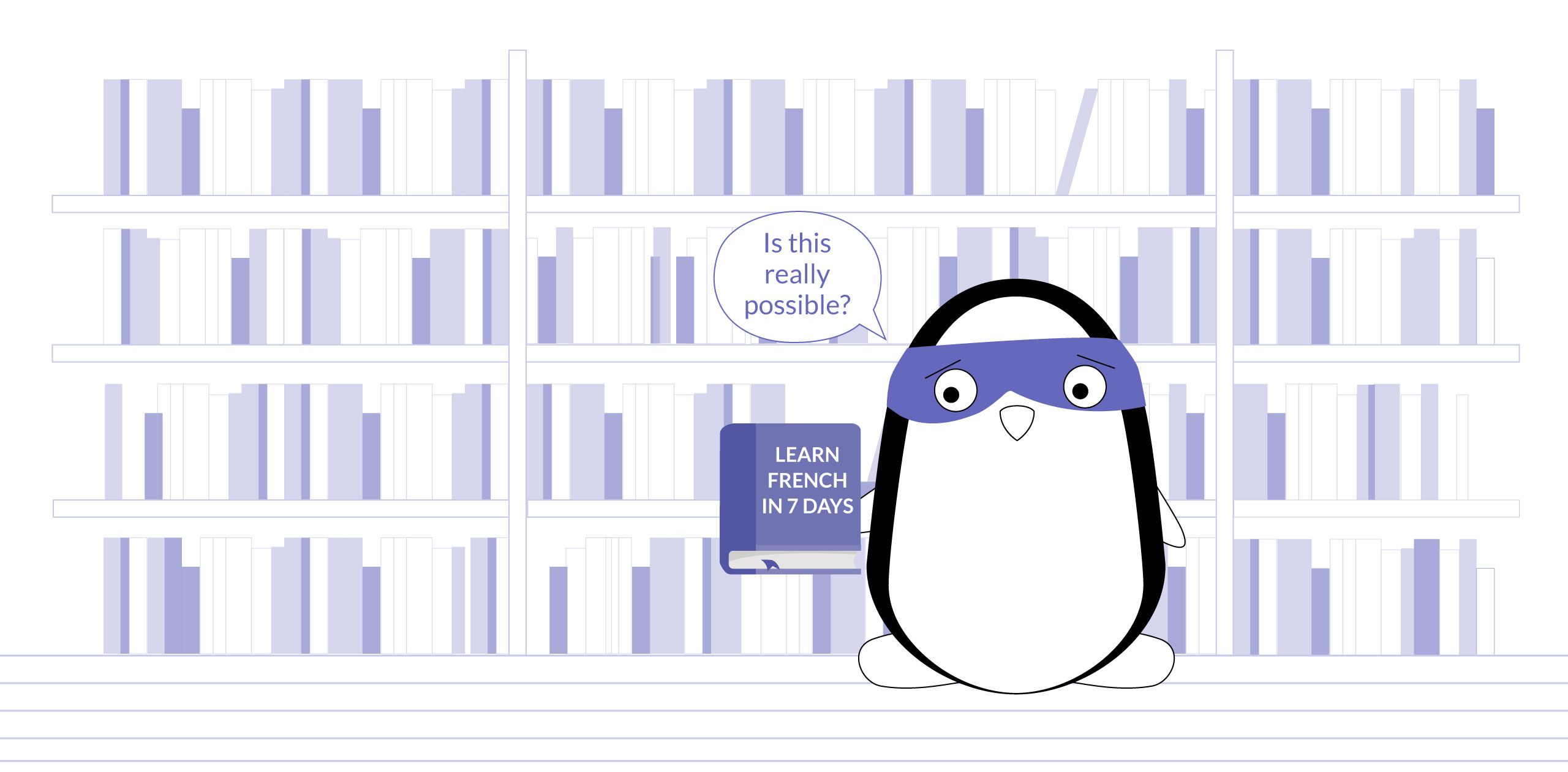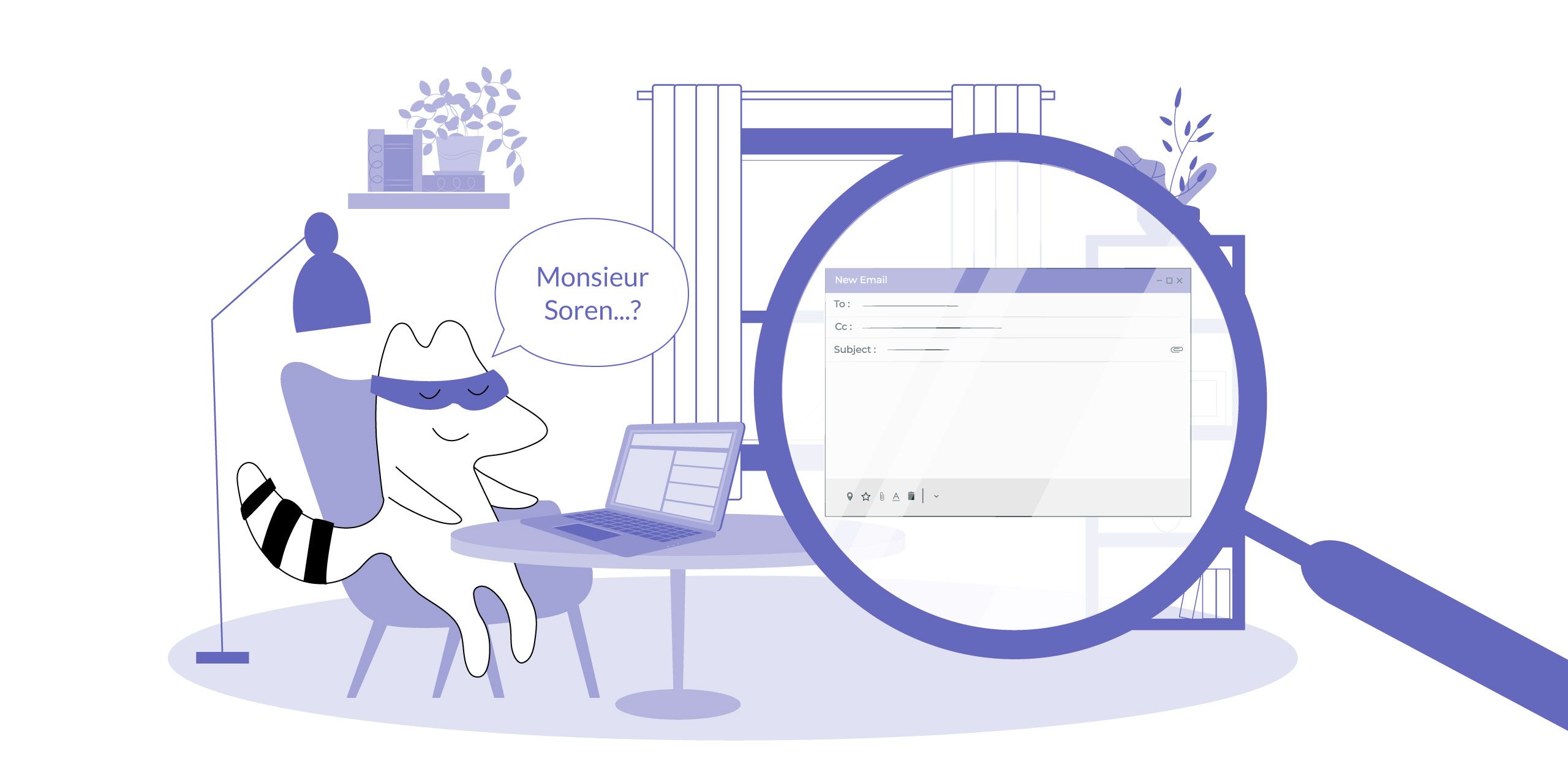
Learning a new language is not only about mastering grammar and vocabulary. Understanding the cultural context and nuance behind phrases is equally important, and the French language, rich in idioms and expressions, is no exception. One of these essential phrases is "excuse me."
In this guide, we will explore the various ways to say "excuse me" in French. From navigating crowded marketplaces in Paris to politely interrupting a conversation in a Provencal café, the correct use of this phrase will help you blend in effortlessly with French society.
More than linguistic knowledge, you'll learn a slice of French etiquette, enabling you to engage with the French culture more authentically and confidently. So, let's dive in and explore the different ways to say "excuse me" in French.
Learn French with Langster
Pardon
Pardon is the most common way to say "excuse me" in French and a versatile word that can be used as both an apology and an excuse. Invariably, this is the French word you will come across most often when navigating social interactions in France.
You can use Pardon in a variety of situations, such as when bumping into someone, interrupting a conversation, or asking for clarification. It replaces Excusez-moi, which is considered too formal for everyday use.
| Usage | Example | English Translation |
|---|---|---|
| Excusing oneself | Pardon, je dois partir maintenant. | Excuse me, I have to leave now. |
| Getting someone's attention | Pardon, pourriez-vous me dire où est la gare? | Excuse me, could you tell me where the train station is? |
| Apologizing | Pardon, je suis en retard. | Sorry, I'm late. |
| Usage | Example | English Translation |
|---|---|---|
| Excusing oneself | Pardon, je dois partir maintenant. | Excuse me, I have to leave now. |
| Getting someone's attention | Pardon, pourriez-vous me dire où est la gare? | Excuse me, could you tell me where the train station is? |
| Apologizing | Pardon, je suis en retard. | Sorry, I'm late. |
Pardonnez-moi
Pardonnez-moi is a more formal and sincere way of asking for forgiveness or apologizing. It is often used in serious situations, such as:
| Usage | Example | English Translation |
|---|---|---|
| Asking for forgiveness | Pardonnez-moi, je ne voulais pas vous blessed. | Forgive me, I didn't mean to hurt you. |
| Making a sincere apology | Pardonnez-moi, je suis vraiment désolé pour ce que j'ai fait. | Please forgive me, I am truly sorry for what I did. |
| Usage | Example | English Translation |
|---|---|---|
| Asking for forgiveness | Pardonnez-moi, je ne voulais pas vous blessed. | Forgive me, I didn't mean to hurt you. |
| Making a sincere apology | Pardonnez-moi, je suis vraiment désolé pour ce que j'ai fait. | Please forgive me, I am truly sorry for what I did. |
Excusez-moi
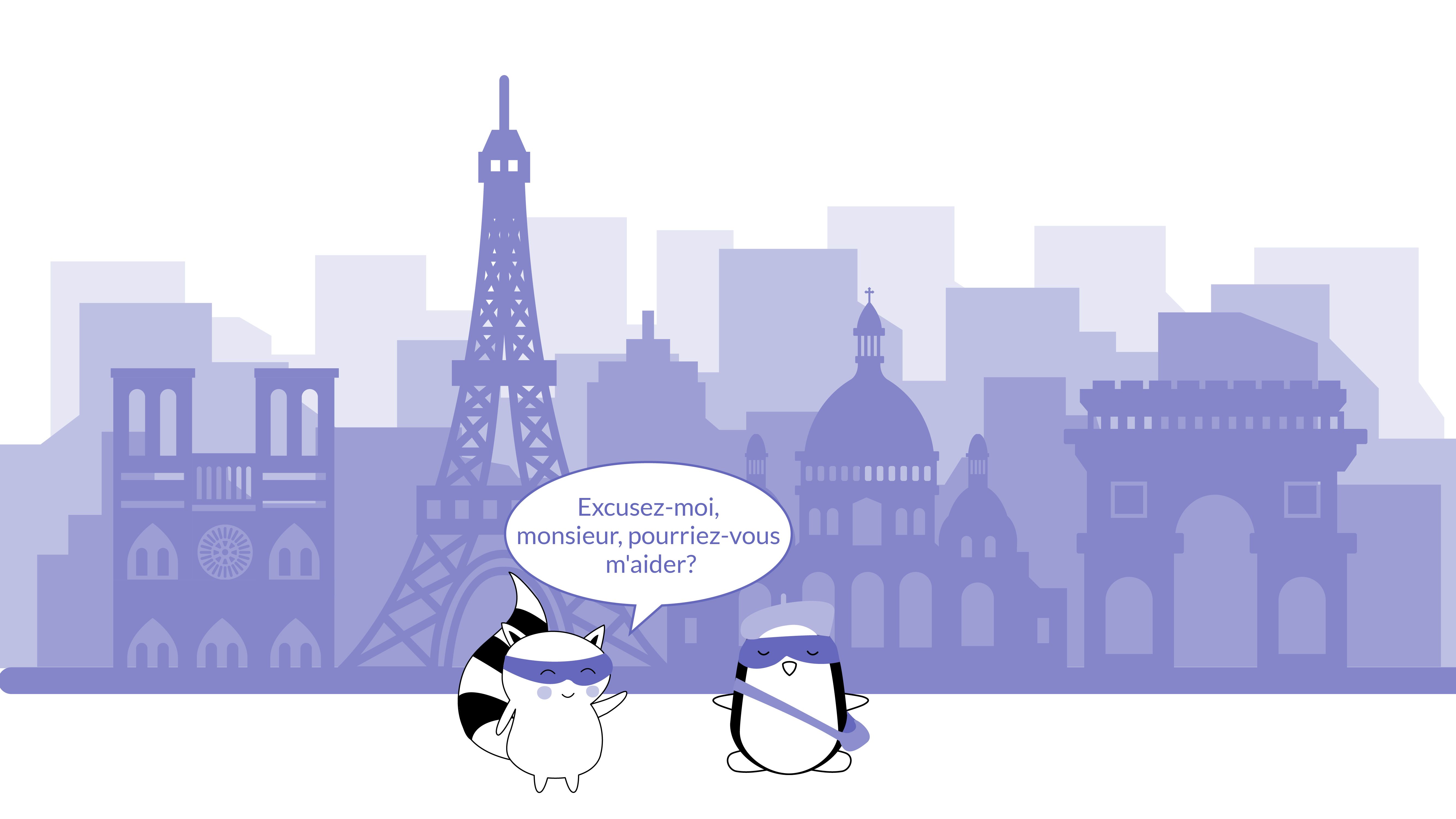
As mentioned earlier, Excusez-moi is considered more formal than Pardon. It is usually reserved for situations that require a higher level of politeness or respect — you can use Excusez-moi when addressing someone older than you or in a position of authority, as well as in professional settings.
When used correctly, it can help you navigate potentially awkward situations with grace and dignity.
| Usage | Example | English Translation |
|---|---|---|
| Addressing someone older than you | Excusezmoi, monsieur/madame, pourriezvous m'aider? | Excuse me, sir/madam, could you help me? |
| Making a request | Excusezmoi, puisje avoir un verre d'eau s'il vous plaît? | Excuse me, may I have a glass of water please? |
| Interrupting a conversation | Excusez-moi de vous interrompre, mais j'ai une question. | Sorry for interrupting, but I have a question. |
| Usage | Example | English Translation |
|---|---|---|
| Addressing someone older than you | Excusezmoi, monsieur/madame, pourriezvous m'aider? | Excuse me, sir/madam, could you help me? |
| Making a request | Excusezmoi, puisje avoir un verre d'eau s'il vous plaît? | Excuse me, may I have a glass of water please? |
| Interrupting a conversation | Excusez-moi de vous interrompre, mais j'ai une question. | Sorry for interrupting, but I have a question. |
Excuse-moi
Excuse-moi is the informal version of Excusez-moi. It is used in casual situations with friends, family, or peers — i.e., when addressing someone you know well and are on friendly terms with. In this case, you can also use the tu form of the French “you” (instead of vous) when referring to someone you know well.
| Usage | Example | English Translation |
|---|---|---|
| Asking for forgiveness | Excuse-moi, j'ai été un peu dur avec toi tout à l'heure. | Sorry, I was a bit harsh with you earlier. |
| Apologizing for interrupting | Excuse-moi, je ne savais pas que tu étais en ligne. | Sorry, I didn't know you were on the phone. |
| When asking for a favor | Excusemoi, peuxtu me passer les clés? | Excuse me, can you hand me the keys? |
| Usage | Example | English Translation |
|---|---|---|
| Asking for forgiveness | Excuse-moi, j'ai été un peu dur avec toi tout à l'heure. | Sorry, I was a bit harsh with you earlier. |
| Apologizing for interrupting | Excuse-moi, je ne savais pas que tu étais en ligne. | Sorry, I didn't know you were on the phone. |
| When asking for a favor | Excusemoi, peuxtu me passer les clés? | Excuse me, can you hand me the keys? |
Désolé
Désolé translates to "sorry" and is used more often by younger generations. It can convey both an apology and a request for forgiveness.
Similar to Pardon, it is a versatile phrase that can be used in various social situations — for example, when making a mistake, apologizing for something, or expressing regret.
| Usage | Example | English Translation |
|---|---|---|
| Apologizing | Désolé, je n'ai pas fait exprès. | Sorry, I didn't mean to do it. |
| Expressing regret | Désolé de vous avoir dérangé si tard. | Sorry to have bothered you so late. |
| Requesting forgiveness | Désolé, je ne voulais pas te blessed. | Sorry, I didn't mean to hurt you. |
| Usage | Example | English Translation |
|---|---|---|
| Apologizing | Désolé, je n'ai pas fait exprès. | Sorry, I didn't mean to do it. |
| Expressing regret | Désolé de vous avoir dérangé si tard. | Sorry to have bothered you so late. |
| Requesting forgiveness | Désolé, je ne voulais pas te blessed. | Sorry, I didn't mean to hurt you. |
Je suis navré
Je suis navré is a more formal way of saying désolé and is used in more serious situations that require a deeper level of sincerity or respect, such as when conveying sincere regret, offering condolences, or expressing sympathy.
| Usage | Example | English Translation |
|---|---|---|
| Offering condolences | Je suis navré pour votre perte. | I am sorry for your loss. |
| Apologizing for a mistake with serious consequences | Je suis navré, j'ai effacé tous les fichiers par accident. | I'm sorry, I accidentally deleted all the files. |
| Usage | Example | English Translation |
|---|---|---|
| Offering condolences | Je suis navré pour votre perte. | I am sorry for your loss. |
| Apologizing for a mistake with serious consequences | Je suis navré, j'ai effacé tous les fichiers par accident. | I'm sorry, I accidentally deleted all the files. |
Avec votre permission
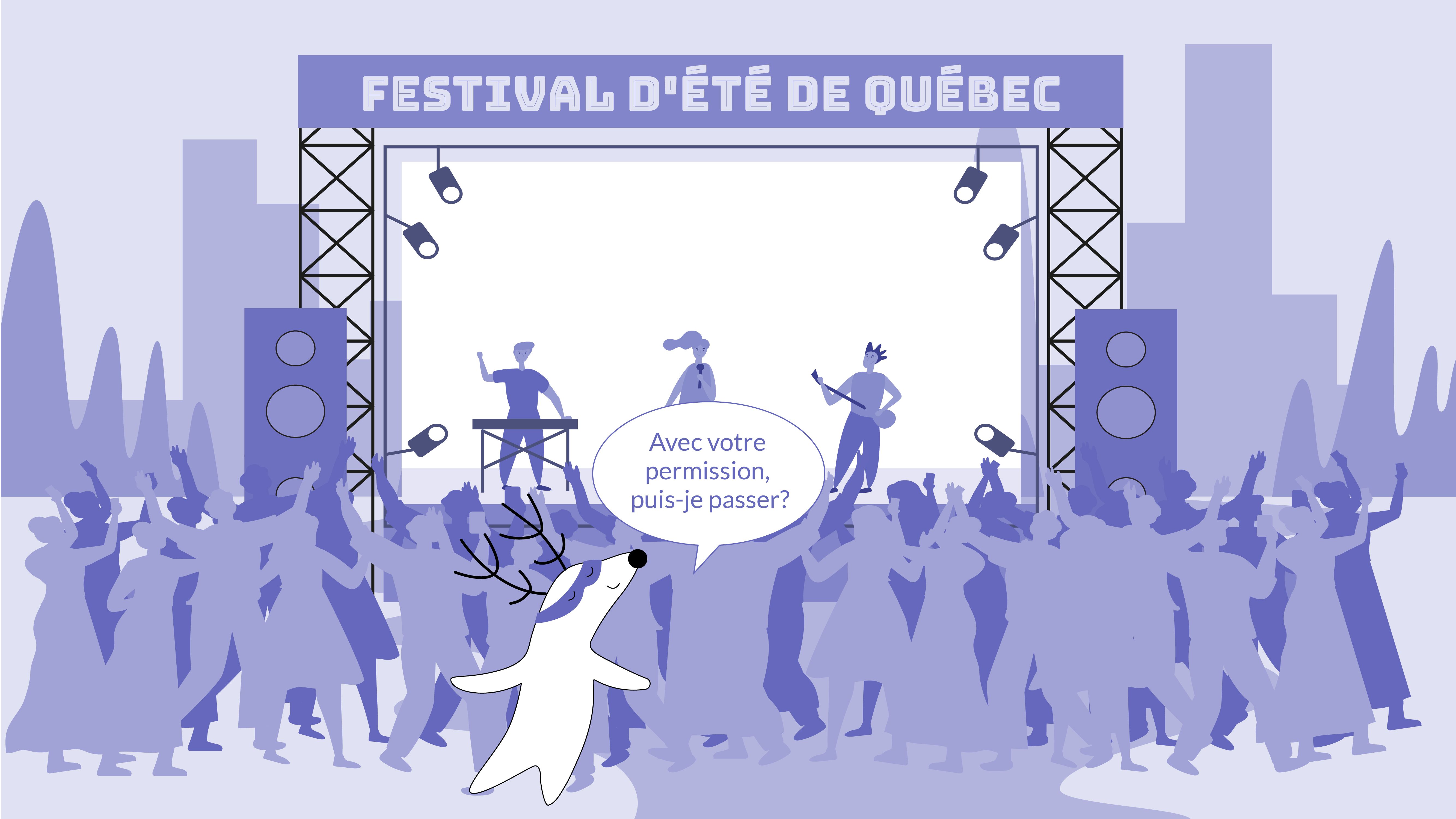
Literally translating to "with your permission," Avec votre permission is used to ask for someone's consent or approval, such as when passing someone in a crowded space or interrupting a conversation.
While it can be considered a polite way of saying "excuse me," it is not commonly used in everyday language.
| Usage | Example | English Translation |
|---|---|---|
| Asking to pass someone | Avec votre permission, puis-je passer? | Excuse me, can I pass? |
| Interrupting a conversation | Avec votre permission, je voulais vous poser une question. | Excuse me, may I ask you a question? |
| Usage | Example | English Translation |
|---|---|---|
| Asking to pass someone | Avec votre permission, puis-je passer? | Excuse me, can I pass? |
| Interrupting a conversation | Avec votre permission, je voulais vous poser une question. | Excuse me, may I ask you a question? |
Alternative Ways to Say “Excuse Me” in French
In this section, we delve further into some alternative expressions and phrases to say "excuse me" in French.
While the phrases we've already discussed are the most commonly used, becoming familiar with a broader range of expressions will help you fully embrace the nuances of the French language and culture. These alternatives can enrich your vocabulary, making your conversations more natural and fluent.
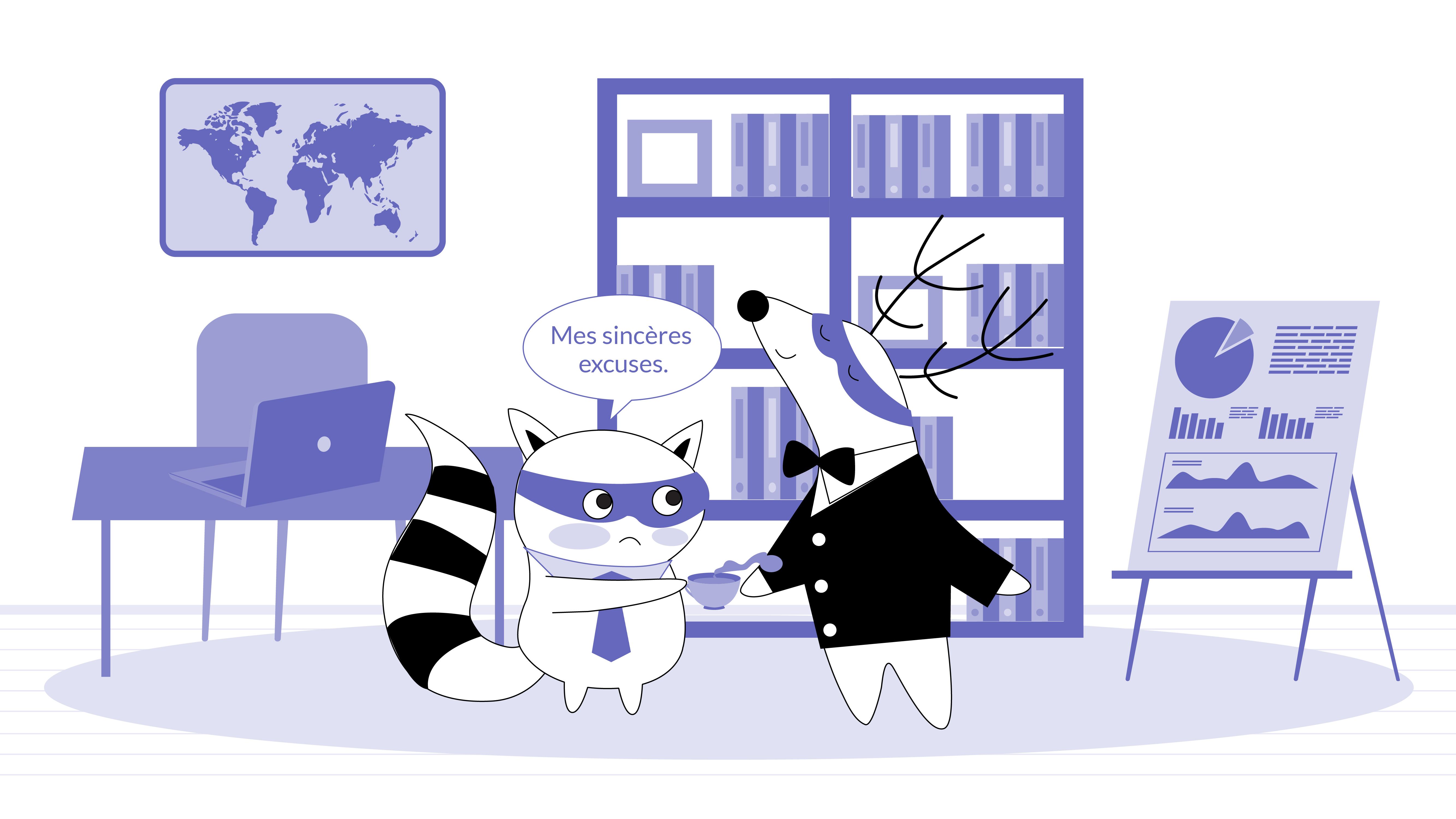
Here’s a handy explanatory table:
| French Phrase | English Translation | When to Use |
|---|---|---|
| Je m’excuse… | I apologize… | Use this when you want to admit responsibility for a mistake or to express regret for an action. It is a general phrase that can be used in both formal and informal situations. |
| Je vous demande pardon. | I ask for your forgiveness | This is a very formal and sincere way to ask for forgiveness. It is often used in serious situations or when you've made a significant mistake. |
| Je te demande pardon. | I ask for your forgiveness | This is the informal version of Je vous demande pardon, used when you are addressing someone you know well or are on familiar terms with. |
| Mes sincères excuses. | My sincere apologies | This is a formal and respectful way to apologize, especially in written communication. It conveys a high degree of regret and repentance. |
| Veuillez noter que. | Please note that | This phrase is used to draw attention to something important or to clarify a point. It is typically used in formal communication, such as emails or presentations. |
| S'il vous plaît mesdames et messieurs, on va commencer. | Ladies and gentlemen, may I have your attention please. | You may have noticed that in some instances, S'il vous plaît is used in the meaning of “excuse me” instead of its regular “please.” This phrase is commonly used in formal settings to gather people's attention or start an event. |
| Je suis désolé de vous déranger, mais… | I am sorry to bother you, but… | Use this when you want to politely interrupt someone or ask for their assistance. It conveys a sense of respect and consideration. |
| Excusez le dérangement. | Sorry for the inconvenience. | This phrase is used to apologize for any inconvenience you may have caused or when something unexpected has happened. It can also be used in written communication. |
| French Phrase | English Translation | When to Use |
|---|---|---|
| Je m’excuse… | I apologize… | Use this when you want to admit responsibility for a mistake or to express regret for an action. It is a general phrase that can be used in both formal and informal situations. |
| Je vous demande pardon. | I ask for your forgiveness | This is a very formal and sincere way to ask for forgiveness. It is often used in serious situations or when you've made a significant mistake. |
| Je te demande pardon. | I ask for your forgiveness | This is the informal version of Je vous demande pardon, used when you are addressing someone you know well or are on familiar terms with. |
| Mes sincères excuses. | My sincere apologies | This is a formal and respectful way to apologize, especially in written communication. It conveys a high degree of regret and repentance. |
| Veuillez noter que. | Please note that | This phrase is used to draw attention to something important or to clarify a point. It is typically used in formal communication, such as emails or presentations. |
| S'il vous plaît mesdames et messieurs, on va commencer. | Ladies and gentlemen, may I have your attention please. | You may have noticed that in some instances, S'il vous plaît is used in the meaning of “excuse me” instead of its regular “please.” This phrase is commonly used in formal settings to gather people's attention or start an event. |
| Je suis désolé de vous déranger, mais… | I am sorry to bother you, but… | Use this when you want to politely interrupt someone or ask for their assistance. It conveys a sense of respect and consideration. |
| Excusez le dérangement. | Sorry for the inconvenience. | This phrase is used to apologize for any inconvenience you may have caused or when something unexpected has happened. It can also be used in written communication. |
Overall, learning how to say "excuse me" in French is an essential part of language learning, since it’s a fundamental expression used in various social interactions. By familiarizing yourself with these different ways of saying it, you'll be well-equipped to navigate your way through any situation and communicate effectively in French.
Remember that context and tone play an important role in determining which phrase to use, so always pay attention to the specific circumstances, and choose your words accordingly.
Takeaway

Hopefully, this guide has provided you with a comprehensive overview of the most common and useful ways to say "excuse me" in French — and the necessary French words to do so.
As you continue your journey learning the beautiful language, don't forget to practice using these phrases in different situations to improve your fluency and confidence. Remember that politeness is highly valued in French culture, so mastering these expressions will not only help you communicate effectively but also make a great impression on the locals.
Practice using our Langster app, and you'll become more confident in using these phrases and blend in seamlessly with the French. Bonne chance!
Learn French with Langster







